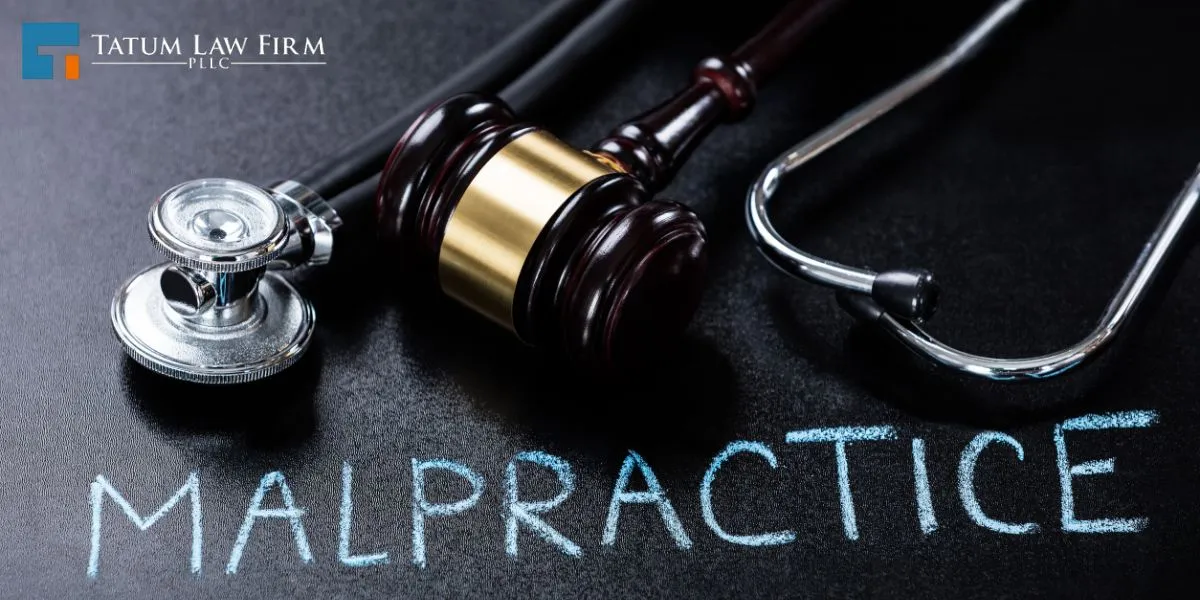Charlotte Malpractice Lawyer

Charlotte Malpractice Attorney
Malpractice is defined as improper, immoral, illegal, or unethical professional conduct. In other words, malpractice is a neglect of professional duty. When a medical or legal professional acts negligently and causes harm to another person, they may be liable for the resulting injuries.
At the Tatum Law Firm, our resourceful malpractice lawyer Brian Steed Tatum serves clients from North Carolina and South Carolina in a variety of professional negligence matters. The laws in this area can be complex, so you should consult an experienced attorney in your state to explore your options.
Assert Your Rights by Pursuing a Negligence Claim
Malpractice lawsuits are rooted in the theory of negligence in Charlotte, NC. Malpractice occurs when a professional is negligent, which means failing to exercise ordinary care in an act or omission that results in injury to someone else. To prevail in a negligence claim in this context, a plaintiff must show:
- The professional had a duty of care;
- The professional breached that duty of care;
- The breach directly led to the harm; and
- The plaintiff suffered damages
There are two common types of malpractices cases: Charlotte medical malpractice and Charlotte legal malpractice. Medical malpractice consists of a physician’s failure to use the degree of care and skill that an ordinary doctor would use in similar circumstances. Medical professionals must follow certain standards to ensure the safety of their patients.
When a doctor’s conduct falls below the accepted standard of practice within their medical community and hurts a patient, a medical malpractice lawsuit may arise. For example, a surgeon who accidently leaves an instrument in a patient’s body after an operation might be found liable for any resulting harm.
Legal malpractice can happen when a lawyer fails to render legal services with the care, prudence, and diligence that an ordinary lawyer would use under similar circumstance. Lawyers are subject to strict standards of conduct, including a fiduciary duty, rules of confidentiality and other ethical regulations. When a lawyer’s breach harms a client, the lawyer may be liable for the resulting damages.
A client would have to show that the attorney’s actions were not simply ill-advised strategy but that the strategy or mistake was something that no reasonable attorney would have pursued or made in a similar case. For example, a lawyer who misses the statute of limitations to file a particular claim could be deemed negligent because a reasonable attorney would likely be aware of the time frame in which the claim could be filed.
Hold Careless Doctors and Lawyers Accountable in North and South Carolina
A negative medical or legal outcome does not automatically mean the medical or legal professional failed to do their job. Malpractice attorneys have to demonstrate facts to show that the professional was negligent and that you suffered harm as a result of the negligent action or inaction.
This can be complicated and usually requires enlisting expert witnesses. If you have been a victim of malpractice, the experienced malpractice attorney Brian Steed Tatum will listen to the details of your situation and, if appropriate, devise a strategy to fit your specific claim. At the Tatum Law Firm, we represent clients throughout North Carolina and South Carolina. Contact our office at 704-307-4350 or fill out our online form to set up a free consultation with no obligation for you.






